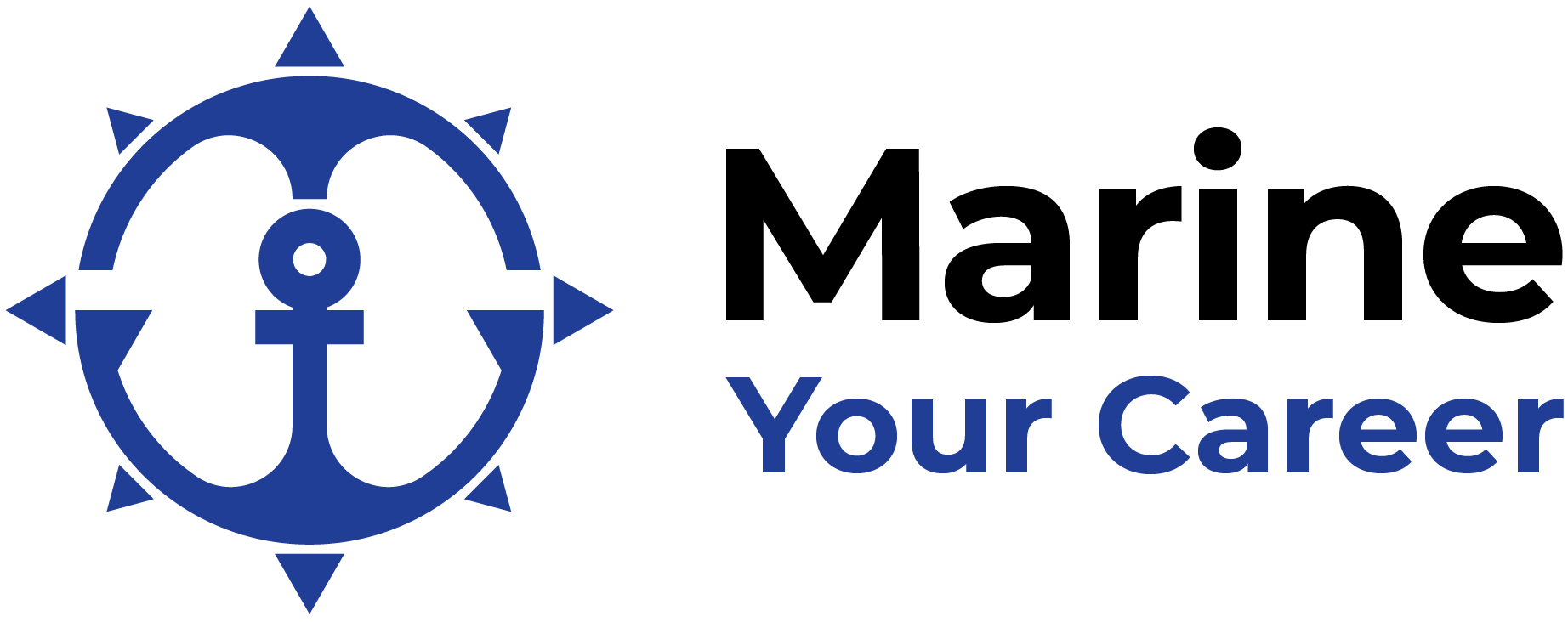Phone Number
+91 9359888231Quick You Email!
info@marineyourcareer.comHow to join Merchant Navy
Joining the Merchant Navy is an exciting and rewarding career choice that offers opportunities for personal and professional growth. If you are considering a career at sea, there are several paths you can take to join the Merchant Navy.
-
Research Different Roles and Identify Preferred Role
Explore the various roles available within the Merchant Navy, such as navigation, engineering, or catering, to determine your area of interest. Once you've researched the roles, identify the one that interests you the most.
-
Obtain Necessary Qualifications
Enroll in a maritime academy or complete specialized training programs to acquire the skills and knowledge required for your chosen position.
-
Medical Fitness
Undergo medical examinations to ensure fitness for a career at sea.
-
Obtain Certifications
Obtain relevant certifications to meet industry standards and requirements.
-
Stay Informed
AKeep abreast of industry requirements and job opportunities within the Merchant Navy.
-
Network for Guidance
Network with current seafarers and maritime professionals to gain insights and guidance for your career path.
Departments
These various departments within the Merchant Navy play distinct yet interconnected roles in serving diverse maritime industries and fulfilling essential functions in global trade and travel. Each department contributes to the overall efficiency and success of the Merchant Navy, amplifying its significance in the global maritime landscape.
-
Cruise
The Cruise department in the Merchant Navy is responsible for operating and managing cruise ships that cater to passengers for leisure travel. This department focuses on providing exceptional guest experiences, offering a wide range of amenities and entertainment options onboard. From luxury accommodations to gourmet dining and thrilling entertainment, the Cruise department is dedicated to ensuring that passengers have a memorable and enjoyable journey at sea. Additionally, the department oversees safety protocols and emergency procedures to guarantee the well-being of all passengers and crew members throughout their voyage.
-
Cargo
The Cargo department of the Merchant Navy is vital for the transportation of goods and commodities across the world's oceans. It manages the loading, stowage, and discharge of various types of cargo, including containers, bulk cargoes, and specialized shipments. The department ensures that cargo is handled and transported with utmost care and efficiency, adhering to international regulations and industry standards. Furthermore, it plays a critical role in maintaining the supply chain by coordinating with port authorities and ensuring timely deliveries to destination ports.
-
Oil Rigs
In the Merchant Navy, the Oil Rigs department is responsible for supporting offshore oil and gas operations. This department manages specialized vessels that transport personnel, equipment, and supplies to offshore platforms and rigs. Additionally, it oversees the maintenance and servicing of these platforms, ensuring operational efficiency and adherence to strict safety protocols. The Oil Rigs department plays a crucial role in the exploration and extraction of offshore energy resources, contributing to global energy supply while upholding environmental protection measures.
-
Yachts
The Yachts department in the Merchant Navy caters to the operation and management of luxury yachts and private vessels. This department focuses on providing high-end services and personalized experiences for yacht owners and guests. From navigational support to onboard hospitality and maintenance, the Yachts department ensures that every aspect of the yacht's operations meets the highest standards of luxury and comfort. Furthermore, it emphasizes privacy and exclusivity, creating bespoke experiences for discerning clientele who seek unparalleled leisure pursuits at sea.
Ranks
Cruise
Deck Department : The ranks in the Deck Department of the Cruise department include Captain, Staff captain, safety office, first officer, Second Officer, Third Officer, and Deck Cadet. The deck department includes environmental compliance officers. The Captain is in command of the ship, while the Chief Officer and other officers assist in navigation, safety, and guest services.
Engine Department : Within the Engine Department of the Cruise department, the ranks consist of Chief Engineer, staff chief engineer, first engineer, Second Engineer, Third Engineer, engine cadets. Also has hotel service engineers. The Chief Engineer oversees the vessel's mechanical and electrical systems, and the other engineers support the maintenance and operation of the ship's engines and machinery.
Hotel Department : The Hotel department in the Cruise department includes roles such as Hotel Director, Cruise Directors, Food and Beverage Manager, Guest Services Manager, Executive Chef, Stewards, etc. These positions focus on managing accommodations, culinary services, and guest experiences aboard the cruise ship.
Cargo
Oil Rigs
Yachts
Eligibility Criteria for Merchant Navy Officer Programs
The Merchant Navy offers a multitude of rewarding career paths for individuals with a strong academic foundation, a passion for the maritime industry, and a thirst for adventure. To embark on this exciting journey, aspiring officers must fulfill specific eligibility criteria before commencing their training programs.
-
Educational Qualifications :
- Deck Officer:
- Applicants for Deck Officer programs must possess a minimum educational qualification of a passed 10+2 (or equivalent) examination from a recognized board.
- Strong academic performance is essential, with a minimum aggregate score of 60% required. Additionally, a minimum score of 65% is mandatory in Physics, Chemistry, and Mathematics (PCM) subjects. These core subjects equip candidates with the foundational knowledge necessary for navigating, operating, and maintaining vessels at sea.
- Marine Engineer Officer:
- Marine Engineer Officer programs offer three distinct
entry points, each with its own educational requirement.
- Bachelor of Engineering (BE) Degree: Aspirants can pursue a BE degree in either Mechanical Engineering, Naval Architecture, or Mechanical Engineering with a specialization in Automation.
- Diploma in Marine Engineering: A three-year Diploma in Marine Engineering from a recognized institute is an alternative pathway.
- Bachelor of Technology (B.Tech) Degree: A B.Tech degree in Marine Engineering from a recognized institute provides another route into this specialized field.
- Regardless of the chosen entry point, a minimum aggregate score of 60% is mandatory, ensuring a strong foundation in engineering principles for success in operating and maintaining marine machinery.
- Marine Engineer Officer programs offer three distinct
entry points, each with its own educational requirement.
- Electrical Officer:
- To qualify for the Electrical Officer program, applicants must possess a Bachelor of Engineering (BE) degree in Electrical Engineering from a recognized institute. This academic background equips individuals with the necessary expertise in electrical systems and their application in the maritime environment.
- Deck Officer:
-
Age Requirements :
- The minimum age for entry into Deck Officer programs is 17 years old on the date of course commencement. This ensures that candidates have the maturity and physical development required for the rigors of seafaring life.
- The maximum age for entry is 25 years old on the date of course commencement. Early entry allows for a longer and more fulfilling career at sea.
-
Additional Requirements :
- Medical Fitness: All aspiring Merchant Navy Officers must undergo a comprehensive medical examination conducted by a doctor approved by the Directorate General of Shipping (DG Shipping). This evaluation ensures that candidates possess the necessary physical and mental fitness to safely perform their duties at sea.
- Good eyesight and color vision are essential for navigating and ensuring the safety of the vessel and crew. Specific visual acuity standards may be outlined by the training institute or regulatory bodies.
-
Passport and Citizenship :
- While specific requirements may vary depending on the chosen training program and future employment opportunities, Indian candidates typically require a valid Indian passport to pursue a career in the Merchant Navy.

